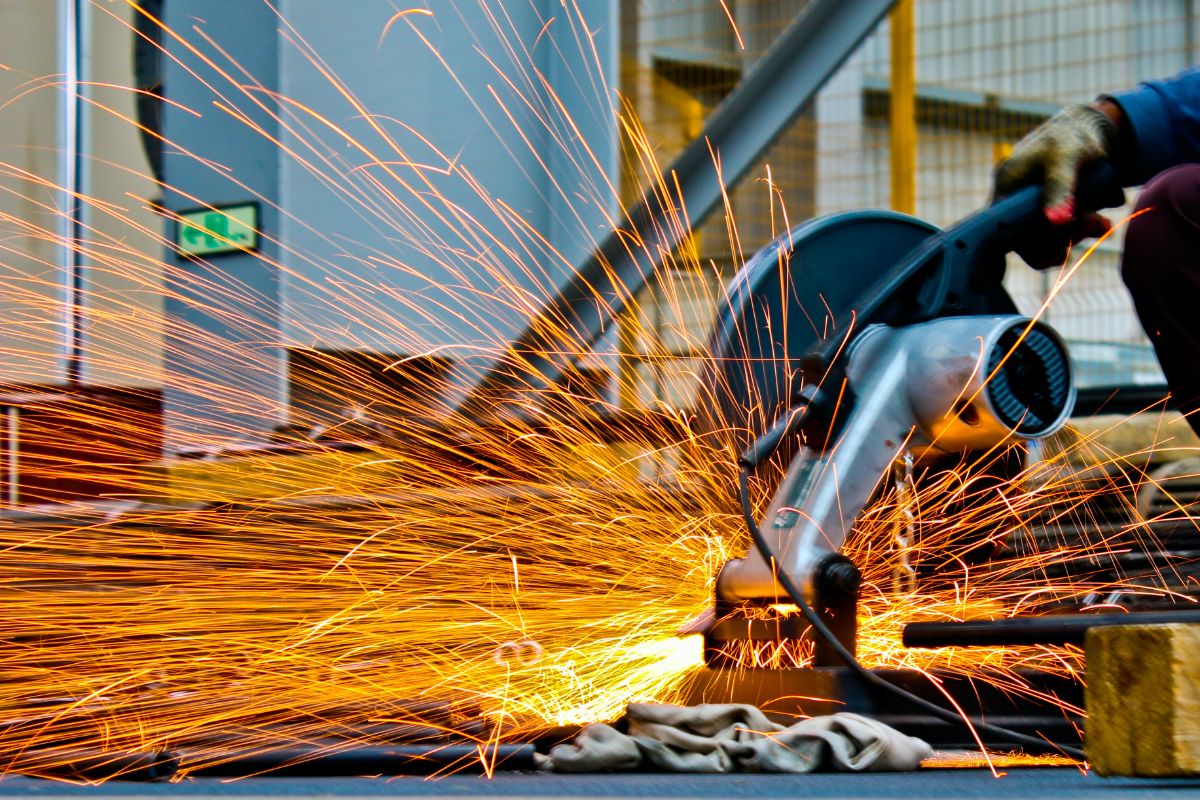
SECTOR SUMMARY
INDUSTRY
The industry is a very broad term for various sectors, all with their specific expertise and output. Anything we see around us has gone through various industrial activities, from the sourcing of materials to the final assembly of the goods and delivery to our house. Nevertheless, the majority of these steps contribute by a significant percentage to greenhouse gas emissions and are also the most difficult to completely transform due to their connectedness.
The production of goods impacts climate change in two ways, directly and indirectly. Any kind of machinery requires some sort of energy for functioning which generally comes from burning fossil fuels. This is the direct negative impact of industries. The indirect impact refers to all emissions produced off-site which can include product distribution, disposal, commuting and employee travel. Production of cement, iron and steel are known to be the most emission-producing materials. Unfortunately, there is also a myriad of other materials produced in tons daily which ends up in landfills such as plastic, textiles, aluminium, processed food, etc.
Our model of the industry is particularly flawed because it stands on a linear lifecycle. We produce, use and throw away. If we could break away from such a system that wastes precious energy and materials, we could resolve one of the largest contributors to climate change.
Luckily there are already many alternatives to the current practices that could help make the change faster.
The production of goods impacts climate change in two ways, directly and indirectly. Any kind of machinery requires some sort of energy for functioning which generally comes from burning fossil fuels. This is the direct negative impact of industries. The indirect impact refers to all emissions produced off-site which can include product distribution, disposal, commuting and employee travel. Production of cement, iron and steel are known to be the most emission-producing materials. Unfortunately, there is also a myriad of other materials produced in tons daily which ends up in landfills such as plastic, textiles, aluminium, processed food, etc.
Our model of the industry is particularly flawed because it stands on a linear lifecycle. We produce, use and throw away. If we could break away from such a system that wastes precious energy and materials, we could resolve one of the largest contributors to climate change.
Luckily there are already many alternatives to the current practices that could help make the change faster.
Increase efficiency
Increasing industrial efficiency, especially in heavy industry, could ensure that materials are being produced with lower demands on fossil fuels.
Alternative energy sources
Industries could switch to other sources of energy, eliminating carbon emissions substantially.
New materials
There can be new materials developed that use sustainable and natural resources.
Recycling
Recycling has been gaining real momentum in recent years and for a good reason. Reusing, repurposing what we consider waste helps us transition towards a circular economy.
If we raise enough awareness, train professionals from these industries and make the necessary changes, we could see a true revolution in the ways we produce goods.
128.8–143.8
GIGATONS
CO2 EQUIVALENT
REDUCED / SEQUESTERED
(2020–2050)

